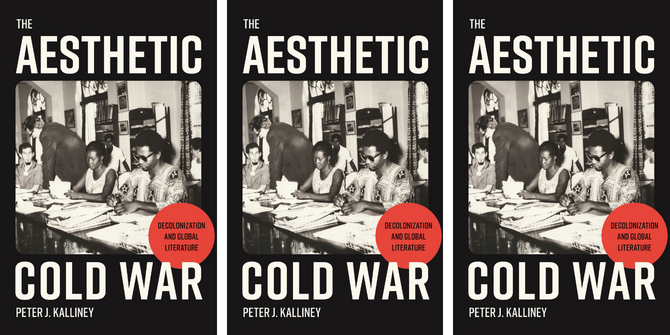This recent collection of original and accessible essays on the work of Marilyn Strathern represents an accessible introduction to the work of one of the world’s leading anthropologists. Alain Pottage reflects on what this means for knowledge production and the ‘impact’ of scholarship.
 Recasting Anthropological Knowledge: Inspiration and Social Science. Jeanette Edwards and Maja Petrović-Šteger (eds), Cambridge University Press. September 2011. 206 pp.
Recasting Anthropological Knowledge: Inspiration and Social Science. Jeanette Edwards and Maja Petrović-Šteger (eds), Cambridge University Press. September 2011. 206 pp.
The contributors to this book reflect on the power of inspiration in social science. In so doing they reinvent a genre with which all scholars will be familiar, as readers, contributors, or, in the case of the rare few, as addressees; namely, works honoring an academic presented during his or her lifetime – the festschrift. This particular collection honours the scholarship of Marilyn Strathern, who is identified by the editors as “one of the most compelling and innovative social anthropologists of contemporary times”, and, in slightly thicker terms, as “a feminist and trailblazing anthropologist of, among other things, new reproductive technologies, gender, kinship, economics and law”.
The genre of the festschrift is precisely the kind of cultural form that Strathern’s anthropology has made it its business to explore. So it is no surprise to find that the contributors, all of whom were doctoral students of Strathern’s, are acutely self-conscious about the act of acknowledging inspiration or of bearing witness to the influence of a teacher or an exemplary scholar. This awareness is most clearly articulated in Adam Reed’s concluding essay: ‘How should one properly recognize the influence of the ideas of another? What is the correct register for acknowledging that person and demonstrating the effect of his or her work?’
After Strathern, these are now anthropological questions. If inspiration is construed as the cause of an intellectual debt, as the source of an obligation to acknowledge or to reciprocate, or perhaps as the prompt for a kind of filial anxiety, then what better intellectual resources could one have to think about that agency than those offered by anthropology?
The obvious anthropological idioms are those of gift and exchange. Twentieth-century anthropology taught us that the relation between the giver and recipient of a gift did not begin with the giver and end with the recipient. The study of exchange became the occasion for anthropologists to develop theories of the gift relation as a doubly reflexive nexus, in which the participants exchanged strategy and counter-strategy, anticipation and counter-anticipation, personification and counter-personification. For Strathern, what is involved in exchange is not so much a transaction in things as an exchange of perspectives – “my view of your assets for your view of my assets”. An already complex anthropological sense of exchange has been worked into a set of concepts for reflection on the way that transactions (such as ‘inspiration’) actually bring into being the persons and resources that they are supposed only to bring together.
As is the case with all truly inspirational social scientists, the scope of Strathern’s scholarship is not constrained by conventional lines of demarcation. (Recall Max Weber’s retort: “I am not a donkey, I do not have a field”). Strathern folds her observations of Melanesian society into the analysis of aspects of Euro-American culture that are surprisingly diverse (and always just plain surprising). In particular, as the editors observe, her anthropology “pays sharp attention to the premises on which ‘western’ scholarship is based”. And the device it brings to bear is a form that Strathern calls anthropology’s “technology”: anthropology uses “relations to explore relations”.
The contributions to this collection show what can be done with this technology. They use it to stir up our perceptions of some quite basic artefacts of Euro-American knowledge: the corporation, cultures of mortality, styles of parenthood, and so on. So the book could usefully be read as a field guide to some symptomatic expressions of contemporary western culture. But what is most interesting is the self-awareness that frames the collection, and which runs through its contributions like a tensile force, namely, the contributors’ sensitivity to their own implication in a mode of knowledge production that is exemplified in the form of the festschrift. As the editors observe, an anthropologist who asserts that he or she has been inspired by a particular scholar “will perform the relationalities that make up concepts within a community of anthropologists and in anthropological practice”.
What is a festschrift, if not a particular mode of ‘relation’? The usual form – and even this reinvented form – conjoins two dimensions of knowledge production. At the same time as they illustrate and carry forward (performatively) the innovations made by an eminent scholar in the conceptual evolution of a discipline, contributors will connect those innovations to the personal qualities of that scholar, which are themselves conventional: integrity, generosity, charisma, attentiveness, institutional adroitness (or diffidence). Rather like a kinship transaction, the collective text cuts and splices two kinds of relation or connection, one of which seems to have a momentum of its own (here, ‘conceptual evolution’ occupies the same register as ‘biology’), while the other seems to be an effect of the contingencies of interpersonal relationships (here, collegiality occupies the same register as ‘choice’ or ‘intention’ in kinship). Knowledge and scholarly identities are produced through forms and transactions such as these.
Social scientists already have vocabularies for thinking about their implication in the institutional complex of the university, but Strathernian anthropology has a unique ability, first to apprehend, and then to dismantle, some of the emergent ways in which knowledge production is managed in higher education institutions. As the editors observe, Strathern was “prescient” in her analysis of the expansion of audit and accountability in higher education, and that these insights were gained “by treating the academy with the ethnographic seriousness it demands”. At a time when we are asked to measure the ‘impact’ of scholarship, or to forge academy-industry partnerships, the anthropologist’s self-consciousness about the convention of the festschrift might inspire us to explore less familiar and less benign technologies of knowledge production in Strathernian ways.
——————————————————————————————-
Alain Pottage is Professor of Law at the London School of Economics. His work focuses on historical and theoretical aspects of intellectual property law. His most recent book, written with Brad Sherman, is Figures of Invention. A History of Modern Patent Law (Oxford University Press, 2010).







